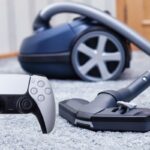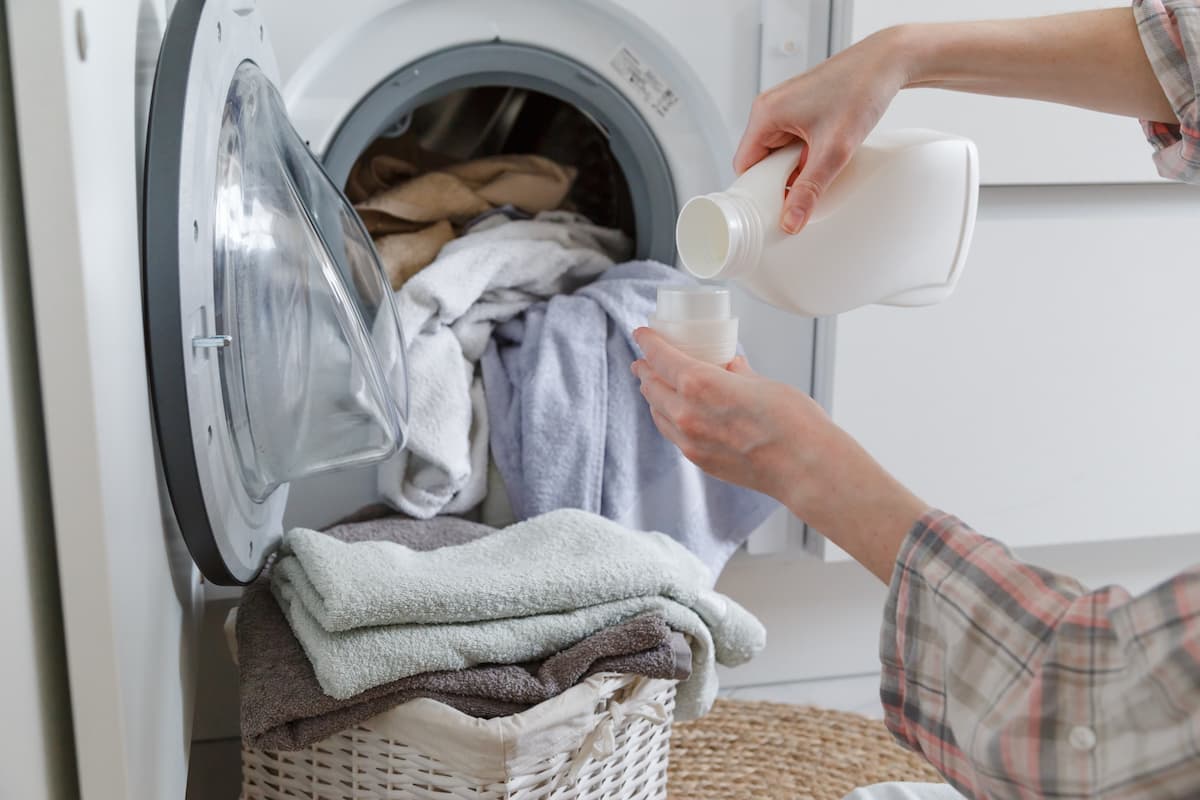Keeping electronics clean can be a daunting task. With everything being touchscreen now, many electronics get dirty very quickly – so can you use acetone to clean your electronics?
It is best not to clean electronics with acetone. Acetone contains chemicals that can damage electrical equipment if it’s not used properly. Instead, it’s recommended to use a mixture of isopropyl alcohol and water to clean your electronics.
The isopropyl alcohol and water mixture should suffice to keep your electronics clean and free of dust. Continue reading to learn more about why you shouldn’t use acetone and what alternatives are available.

Can You Clean Electronics With Acetone?
Keeping electronics clean can be a hassle. If it isn’t the fingerprints you need to clean off, it’s dust and other grime. So, is acetone a good cleaner?
You shouldn’t clean electronics with acetone. Acetone can be better at removing adhesive than alcohol, but it can damage the plastics (ABS plastics), which are most often associated with electronic development, so you’d have to be very careful with its application.
Rubbing alcohol and other high-alcohol solutions usually contain chemicals and scents that can be harmful when used around electrical wires and boards. It is best only to use products that have isopropyl alcohol as the only active ingredient.
Is Acetone Better Than Isopropyl Alcohol?
Both isopropyl alcohol and acetone are versatile, affordable, and can be used in many different ways. However, they do better on different products.
Metals and woods do better with acetone, while plastics do better with isopropyl alcohol.
Since electrical devices are made from an array of plastics, alcohol can effectively clean and disinfect your device without breaking down those plastics and causing damage.
Isopropyl alcohol is much better than acetone for cleaning electronics. Alcohol is a good disinfectant that won’t damage electricals in the same way acetone will. Acetone contains harmful chemicals, while isopropyl alcohol is more versatile and less risky to use on electronics.
Acetone is better used on industrial machines, car parts, or wood. Acetone is a solvent that can be used to break down chemical stains such as nail varnish. It’s often used to remove car paint and is incredibly strong.
So what is isopropyl alcohol, and what else is it used in? Read below to find out more.
What Is Isopropyl Alcohol?
Isopropyl alcohol is an excellent disinfectant used in many applications, such as perfume and hair products, and it’s great for all-purpose cleaning.
Rubbing alcohol, which many of us have in our medicine cabinets, is a mixture of isopropyl alcohol mixed with water until it is about a 70/30 concentration. It is used as an antiseptic and in products like aftershave and hand lotions as well.
Now that we know more about isopropyl alcohol, what is acetone, and how is it used?
Benefits of Using Isopropyl Alcohol
Isopropyl Alcohol is inexpensive and easy to purchase. Some of the reasons it is an excellent choice to use are:
- It can remove oils from fingerprints, adhesives, and germs, including viruses and bacteria.
- It evaporates quickly.
- It has low toxicity, but you should still work with it in a ventilated area.
- Mixes entirely with water and evaporates with the water after cleaning.
Although ingestions of isopropyl alcohol are rarely lethal, treatment is still needed if that happens.
How To Clean Your Device With Isopropyl Alcohol
When using rubbing alcohol (isopropyl alcohol) to clean electronics, follow the simple instructions below:
- Place the alcohol on a cloth or cotton swab. Ensure you have wiped off the excess, so it doesn’t drip.
- Apply it to the device, remembering to wipe in an S pattern. Thoroughly dry the area after cleaning.
Remember to keep a few things in mind while cleaning your electronics with alcohol:
- Never mix rubbing alcohol and bleach. Mixing can cause severe fumes and can be dangerous to anyone who breathes it in.
- Don’t use it near an open flame, as isopropyl alcohol is flammable.
- Never ingest rubbing alcohol. If accidental ingestion happens, seek medical help immediately.
What Liquid Is Best for Cleaning Electronics?
Many people wonder what liquid is best for cleaning electronics. Things like glass cleaners or multipurpose cleaners are not recommended for any electronic devices, and you should never submerge your electronics in any liquid.
Isopropyl alcohol is the choice for cleaning electronics. It evaporates quickly and does not leave oils after it evaporates. It can also aid in killing germs and bacteria left on devices from the user’s hands. WD40 is also an excellent choice.
Continue reading below to learn more about the isopropyl alcohol mixture components.
Is 91% Isopropyl Alcohol Safe for Electronics?
The isopropyl alcohol mixture you use for your electronics does need to be of particular strength. You should try to avoid using a mixture of isopropyl alcohol that is below 90% on any type of electronics or things like circuit boards. Otherwise, you risk damaging your device.
91% Isopropyl alcohol is safe for electronics. If the mixture is less than 90%, you’ll need to be extra careful to avoid spilling the mixture. The stronger the mixture, the better job it will do cleaning your electronics.
Be extra careful not to spill alcohol on circuits and wires. As a precaution, always unplug your device before cleaning.
What if you don’t want to use alcohol for your electronics? Read below to find out what you can use instead.
What Can You Use To Clean Electronics?
If you don’t want to use alcohol to clean your devices, other tools are available.
You can use WD40, ammonia-free electronic wipes, and microfiber cleaning cloths to clean your electronics. While alcohol is usually the best option, these will do in a pinch. Whatever you do, don’t spray your device with liquids while cleaning.
Microfiber cleaning cloths are great alternatives to alcohol. You can dampen them with room-temperature water and wring them out well. Never spray water or cleaners directly onto monitors, as it could damage them.
Ammonia-free electronic wipes are another alternative to alcohol you can use. You can find them on Amazon and in electronic stores.
WD40 has a cleaning agent that will help you degrease and disinfect your electrical devices. However, always spray this cleaner onto a cloth before applying to your electronics.
Final Thoughts
Electronics can gather lots of dust, and touchscreens harbor tons of fingerprints in just minutes of use.
To clean the dust and fingerprints and sanitize your device, you can use a mixture of alcohol and water (90/10). Choosing microfiber cloths or ammonia-free electronic wipes are both good options if you prefer not to use isopropyl alcohol.
You should never use spray water, glass cleaner, or multipurpose cleaners on your electronics. These can cause damage and risk of electrocution.





